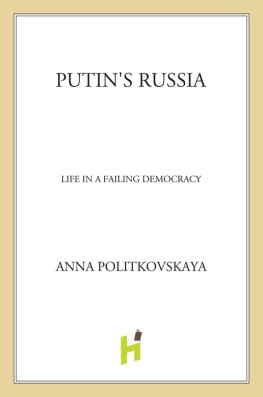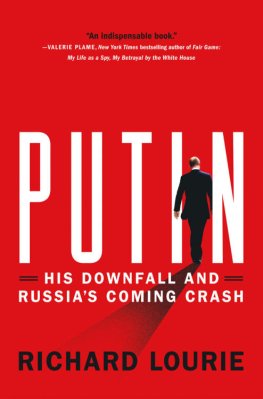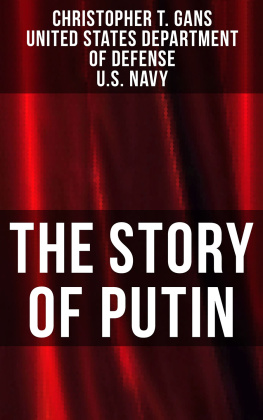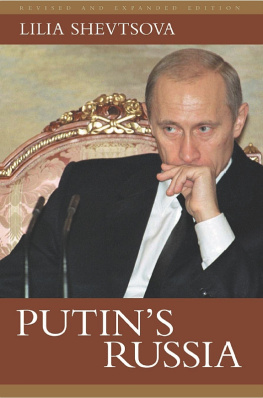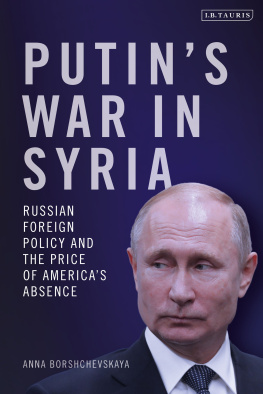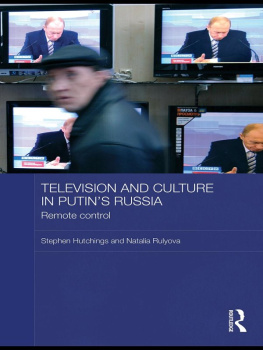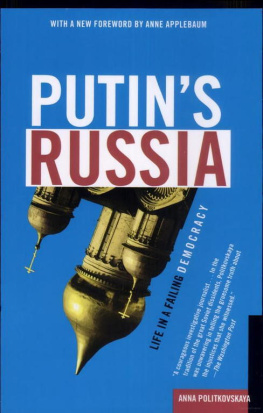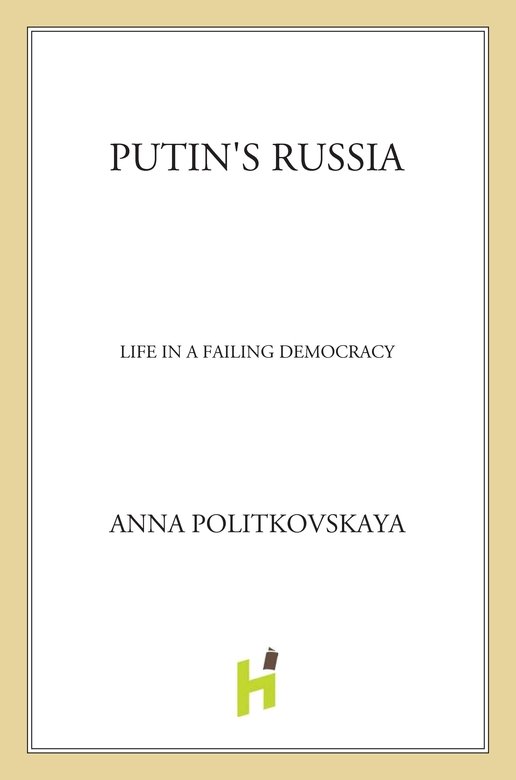J uly 10, 2004, is just another day in the calendar of Russia. It happens to be the cutoff date for making changes to this book.
Late yesterday evening, Paul Khlebnikov, editor in chief of the Russian edition of Forbes magazine, was murdered in Moscow. He was mowed down as he left the magazines office. Khlebnikov was famous for writing about our oligarchs, the structure of Russian gangster capitalism, and the huge sums of easy money certain of our citizens have managed to get their hands on. Also last evening, Victor Cherepkov was blown up by a grenade in Vladivostok. He was a member of our parliament, the Duma, and a prominent champion of the weakest and poorest of this land. Cherepkov was running for mayor of his native city, the most important municipality in the Far East of Russia. He had successfully gotten through to the second round and looked to have a real chance of being elected. As he left his campaign headquarters he was blown up by an antipersonnel mine activated by a trip wire.
Yes, stability has come to Russia. It is a monstrous stability under which nobody seeks justice in courts that flaunt their subservience andpartisanship. Nobody in his or her right mind seeks protection from the institutions entrusted with maintaining law and order, because they are totally corrupt. Lynch law is the order of the day, both in peoples minds and in their actions. An eye for an eye, a tooth for a tooth. The president himself has set an example by wrecking our major oil company, Yukos, after having jailed its chief executive, Mikhail Khodorkovsky. Putin considered Khodorkovsky to have slighted him personally, so he retaliated. Not only did he retaliate against Khodorkovsky himself, he went on to seek the destruction of the goose that laid golden eggs for the coffers of the Russian state. Khodorkovsky and his partners have offered to surrender their shares in Yukos to the government, begging it not to annihilate the company. The government has said, No. We want our pound of flesh. On July 9, Putin strong-armed his loyal supporter Muhammed Tsikanov into the post of vice president of Yukos-Moscow, the parent company. Nobody has any doubts that the former deputy minister for economic development has been parachuted in for one reason only: to coordinate the delivery of Yukos into the hands of those whom Putin favors. The market is in turmoil, investors are running for cover, and all the remotely successful business executives I know spent May and June looking for ways to move their capital to the West.
They were wise to do so. On July 8, 9, and 10, lines a mile long formed at ATMs. The authorities had only to hint that a crackdown might close some of the banks; the result was the withdrawal from Alpha Bank, one of the most stable, of funds to the tune of two hundred million dollars in seventy-two hours. Other banks also saw a run on deposits.
It took just a hint. Because everyone expects the state to play dirty, the withdrawal of those two hundred million dollars in three days tells us all we need to know about Russias current stability.
If we go by the official surveys of public opinion, conducted by polling firms that have no wish to lose their contracts with the presidents office, Putins popularity rating couldnt be better. He has thesupport of an overwhelming majority of the Russian public. Everybody trusts him. Everybody approves of what he is doing.
AFTER BESLAN
On September 1, 2004, a horrible act of terrorism, one without precedent, was perpetrated in Russia, and from now on the name of the little North Ossetian town of Beslan will be associated with a waking nightmare beyond the imaginings of Hollywood.
On the morning of September 1, a multinational gang of thugs seized control of No. 1 school in Beslan, demanding an immediate end to the second Chechen war. The hostage takers struck during the annual lineyka , a celebration of the beginning of the school year that is observed throughout Russia. By tradition this is an occasion to which whole families come: grandmothers and grandfathers, aunts and uncles, and especially the relatives of the youngest children, who are going to school for the first time.
This is why almost 1,500 people were taken hostage: schoolchildren, their mothers and fathers, their brothers and sisters, their teachers and their teachers children.
Everything that happened during the period of September 13, and in Russia subsequently, has been the predictable consequence of the Putin regimes systematic imposition of the power of a single individual, to the detriment of common sense and personal initiative.
On September 1 the intelligence services, and after them the authorities, announced that there actually were not that many people in the school: just 354 in all. The infuriated terrorists told the hostages, When we have finished with you, there really will be only 354. The relatives who had gathered around the school said the authorities were lying: more than a thousand people were trapped inside.
Nobody heard what the relatives were saying, because nobody was listening. They tried to get their message through to the authorities byway of the reporters who had converged on Beslan, but the journalists went on echoing the official tally. At this point, some of the relatives started beating up some of the journalists.
The authorities spent September 1 and the first half of September 2 in an unforgivable state of shock and disarray. No attempts were made to negotiate, since such a move had not been sanctioned by the Kremlin. Anybody attempting to lay the groundwork for negotiations was subjected to intimidation, while those whom the bandits called upon to come forward and negotiatePresident Zyazikov of Ingushetia; President Dzasokhov of North Ossetia; Putins adviser on Chechnya, Aslambek Aslakhanov; and Dr. Leonid Roshal (who had mediated in previous sieges)kept their heads down or fled the country, displaying cowardice at the very moment when courage was essential. Each of them subsequently had his excuses ready, but the obstinate fact remains that none of them entered the building.
Against this background of official cowardice, relatives of the hostages were terrified that there would be a repetition of the governments tactic for ending the Nord-Ost siege at a Moscow theater in 2002, when they mounted an assault that resulted in the loss of an enormous number of innocent lives.
On September 2, Ruslan Aushev, the former president of Ingushetia, entered the beleaguered school. Reviled by the Kremlin for constantly calling for peace talks and a political settlement of the Chechen crisis, Aushev had been forced to voluntarily resign in favor of the Kremlins candidate, FSB general Zyazikov.
Arriving in Beslan, Aushev had found a deplorable situation, as he later recounted. He discovered that, one and a half days after the school had been seized, none of those in the headquarters of the operation to free the hostages was at liberty to decide who should take part in negotiations. They were waiting for instructions from the Kremlin and paralyzed by the fear of losing favor with Putin, whose displeasure would signal the end of their political careers. Evidently this consideration took priority over concern for the predicament of thehundreds of hostages. The deaths of hostages could always be blamed on the terrorists, whereas running afoul of Putin would be political suicide.

